Traditional hierarchies are losing influence from "summary" of New Power by Jeremy Heimans,Henry Timms
The power dynamics of our society are undergoing a massive shift. Traditional hierarchies, once the dominant force in shaping our world, are now facing a formidable challenger in the form of new power. This new force, characterized by decentralized networks and participatory cultures, is fundamentally changing the way we organize and mobilize. New power operates on the principles of openness, collaboration, and inclusivity. It thrives on the engagement and participation of a broad base of individuals, rather than the control exerted by a select few at the top of a hierarchy. This shift is driven by technological advancements that have made it easier for people to connect, communicate, and coordinate their actions on a global scale. In this new paradigm, traditional hierarchies are struggling to maintain their grip on power. They are finding it increasingly difficult to command and control the narratives, resources, and decisions that once defined their authority. Instead, they are being forced to adapt to a world where influence is distributed, and leadership is shared among a diverse array of actors. The rise of new power is reshaping our institutions, from governments and businesses to social movements and cultural organizations. It is creating opportunities for innovation and collaboration, while also posing challenges to those who are wedded to old ways of thinking and operating. Those who can harness the power of new power are able to tap into the creativity and energy of a connected and empowered populace. In this new landscape, success is not measured by how much power one can consolidate at the top, but by how well one can mobilize and engage a network of supporters and collaborators. Those who can adapt to this new reality will thrive, while those who cling to outdated models of hierarchy and control will find themselves increasingly marginalized. The future belongs to those who can embrace the principles of new power and harness its potential for positive change.Similar Posts
Never compromise on core principles
The core principles, the basic values, the moral imperatives, these are the foundation upon which we build our movements. They ...
Power can create a perception of invincibility
Power can create a perception of invincibility. This is a common phenomenon observed throughout history and across cultures. Wh...

The shift is towards more collective leadership
The idea of collective leadership signals a profound shift in the ways individuals understand and practice leadership. No longe...
Stay vigilant against cooptation
The danger of cooptation is a constant threat to any movement or organization that seeks to bring about social change. It is a ...

Social movements are born from communication networks
In the digital age, social movements are no longer confined to physical gatherings or protests. They are increasingly being bor...
The wielding of power requires individuals to make difficult choices and sacrifices
In a world where power is at the tip of their fingers, individuals are faced with the daunting task of making difficult choices...
The rise of nonstate actors is challenging traditional power dynamics
In today's world, power dynamics are undergoing a profound transformation. Traditional power structures, once dominated by stat...
Embracing new power can lead to a more participatory and inclusive society
When people embrace new power, they are choosing to operate in a more decentralized, participatory manner. This shift in mindse...
